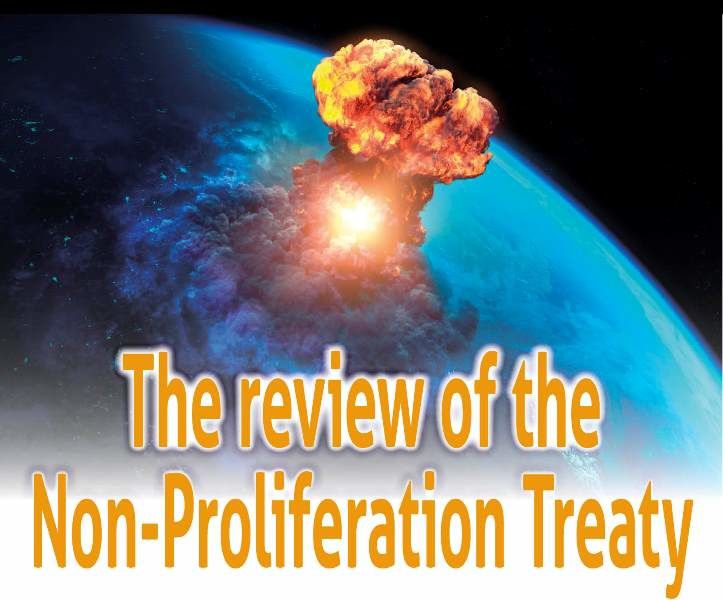04 Mar. 2015 NATO
Participants from nearly 50 nations across five continents met in Doha, Qatar on 1-3 March to discuss current threats and challenges posed by the proliferation of weapons of mass destruction (WMD) including in the Middle East and Asia. The event provided an informal forum to exchange views on key issues ahead of the 2015 Nuclear Non-proliferation Treaty Review Conference in spring.
The three-day event marked the very first time that the Annual NATO Conference on WMD Arms Control, Disarmament and Non-Proliferation was held outside Europe and was hosted by a partner from the Gulf. It is one of NATO’s largest outreach activities involving Alliance member states as well as partners from around the world.
“This conference is a strong demonstration of the important role that NATO attributes to engaging with partner countries here in the Gulf region,” said NATO Deputy Secretary General Ambassador Alexander Vershbow. “The case of Syrian chemical weapons shows that it is possible to meet non-proliferation challenges … Further success will require two things: first, all countries and all international institutions must play their rightful part. And second, we need an open and frank debate on what the challenges are and how we can address them.”
Other key speakers included the Defence Minister of Qatar, Major General Hamad bin Ali Al Attiyah, NATO Deputy Secretary General Alexander Vershbow, the UN High Representative for Disarmament Affairs, Angela Kane, and Lord Desmond Browne, former UK Secretary of Defence.
“This first NATO WMD conference in the region reflects the full commitment of ICI partners and Qatar to increased cooperation with NATO in the fight against WMD proliferation and terrorism and to peace and security in the region,” said Major General Hamad bin Ali Al Attiyah. “The meeting comes in times of serious turmoil in the Middle East challenged by regional conflicts and terrorism,” he added.
“The security situation in both the East and the South is of particular importance for NATO Allies,” said Ambassador Sorin Ducaru, NATO Assistant Secretary General for Emerging Security Challenges. “These new challenges have been addressed by NATO in a very timely manner at the Wales Summit in September 2014 where NATO leaders reaffirmed that the proliferation of WMD and means of delivery both by states and non-state actors continues to be a serious threat of global scope,” he also stated.
The future of the Nuclear Non-Proliferation Treaty (NPT)
Weapons of mass destruction remain a pressing security issue worldwide despite the existence of major non-proliferation treaties and disarmament conventions in the fields of nuclear, chemical and biological weapons – as not all countries are yet parties to these instruments.
NATO’s WMD conference prepared the discussions for the 2015 NPT Review Conference, which will take place at the United Nations Headquarters in New York on 27 April - 22 May and will bring together all the NPT states to review the implementation of the treaty.
The discussion also addressed the conventions prohibiting chemical and biological weapons, and the challenges created by the nexus between technological change, terrorism and WMD proliferation.
Dealing with CBRN risks
“There is a growing concern that chemical, biological, radiological and nuclear (CBRN) material, still not all fully accounted for in Syria and Iraq, as well as remaining material in Libya could be used by terrorist organisations, such as ISIL and Al Qaida, as ’weapons of terror’ both in countries of the region, as well as beyond,” said Wolfgang Rudischhauser, Head of the NATO WMD Non-Proliferation Centre.
NATO is engaging its wide network of partners in practical cooperation on CBRN risks and nuclear security.
Last December, for example, a CBRN training course, open to all countries of the Gulf Cooperation Council, was hosted by Kuwait.
Also in 2014, the NATO Science for Peace and Security (SPS) Programme supported a training course, led by Italy and Morocco, to introduce diplomats, army and internal security officers from Morocco and Algeria to the key concepts of nuclear non-proliferation, security and safety. Coming up in June this year, an event involving Allies and partners will be organised in Vyškov, the Czech Republic, on how best to cope with new challenges in the area of CBRN defence.
Other SPS activities seek to improve resilience to nuclear and other weapons through training and multi-year projects in both NATO and partner countries.
---
Previous NATO conferences on the challenges of WMD proliferation were held in Italy (2004), Bulgaria (2005), Lithuania (2007), Germany (2008), Poland (2009), the Czech Republic (2010), Norway (2011), Hungary (2012), Croatia (2013) and Switzerland (2014).
Qatar is one of four countries – along with Bahrain, Kuwait and the United Arab Emirates – participating in NATO’s Istanbul Cooperation Initiative (ICI). Launched in 2004, ICI seeks to promote political consultation and practical cooperation between NATO and countries in the Gulf region.











